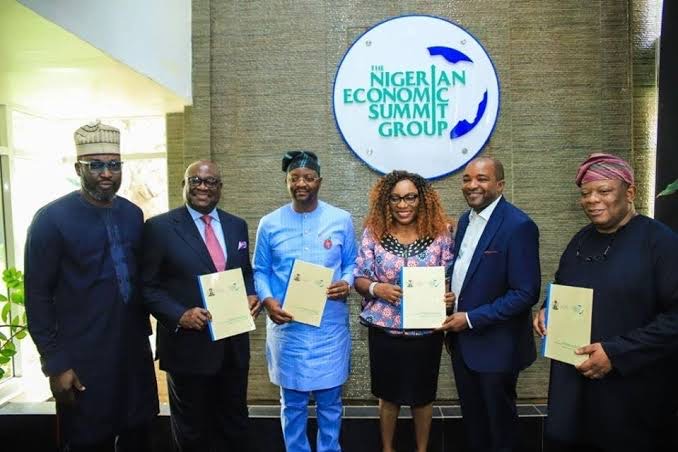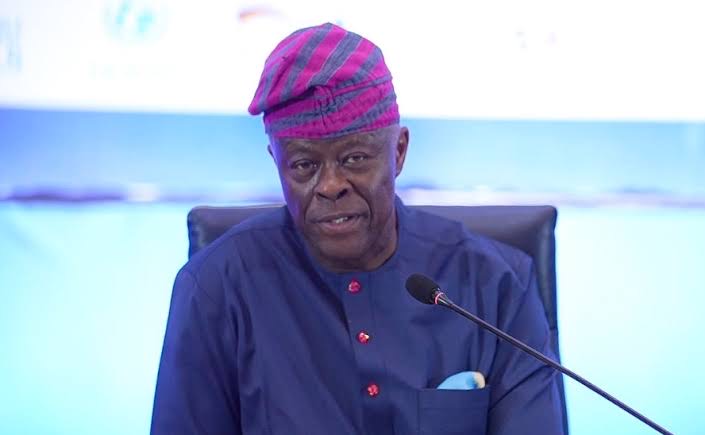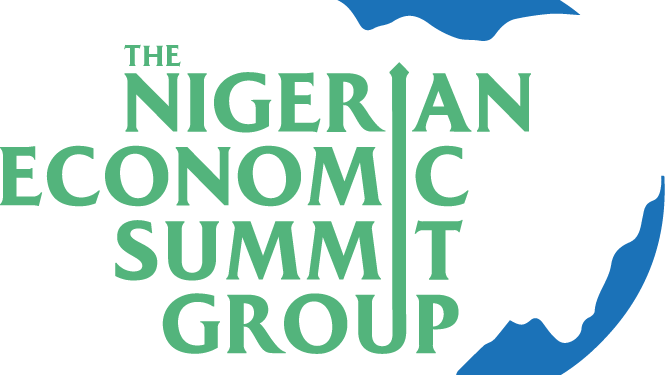Nigeria’s Minister of Finance and Coordinating Minister for Economic Affairs, Wale Edun, Chairman of the Nigeria Economic Leaders Group (NESG), Olayinka Yusuf, and other public and private sector stakeholders agree that comprehensive reforms are needed to address the country’s economic challenges.
They discussed the Nigerian economy at a National Economic Dialogue organized by the NESG with the theme “Nigeria’s Economic Future: 25 Years of Democracy and Beyond.” The dialogue is a prelude to the 30th Economic Summit scheduled to be held in October.
The Finance Minister stressed the central role of ongoing macroeconomic reforms in shaping Nigeria’s economic future.
Reflecting on 25 years of democracy, the Honourable Minister stressed the need for continued progress in governance and expansion of economic opportunities.

He pointed to recent initiatives such as the issuance of the first domestic US Dollar-denominated bond that is expected to attract Nigerian savings from abroad and spur domestic economic growth.
While acknowledging the existing challenges, Edun reiterated the government’s commitment to contain food inflation and improve food security. He also stressed the value of coherent strategic planning and the importance of learning from successful international models.

In his welcoming speech, NESG’s Yusuf highlighted challenges impeding Nigeria’s economic growth, including poor governance, poverty, unemployment, and insecurity. Emphasizing that overcoming these obstacles will require concerted efforts from all stakeholders, he thanked NESG for its key role in facilitating these important economic discussions and reiterated President Tinubu’s unwavering commitment to promoting comprehensive economic reforms.
Notable participants included Chief of Staff to the President Femi Gbajabiamila, Minister of Budget and Economic Planning Atiku Bagudu, and Chairman of the All Progressives Congress Abdullahi Ganduje, among others.
Meanwhile, Chief of Staff to President Tinubu, Femi Gbajabiamila, stressed the need for collaboration between the government, the private sector, and well-meaning Nigerians in finding solutions to the multiple challenges facing the country, saying the government is grappling with these challenges that it cannot address alone.
“Of course, it is the responsibility of the Federal, State, and local Government Areas to find and implement necessary answers to the problems that confront us today. The government alone cannot define the future of any nation. All hands must be on deck. We just need to keep on pushing and pushing to solve these challenges.
“For us to have an economic future, it has to be predicated on democracy. The two are Siamese twins.
“Nigeria belongs to us all. We have the responsibility to build it and leave a legacy which we will be proud of. It can only be achieved through joint efforts,” Gbajabiamila said.

































